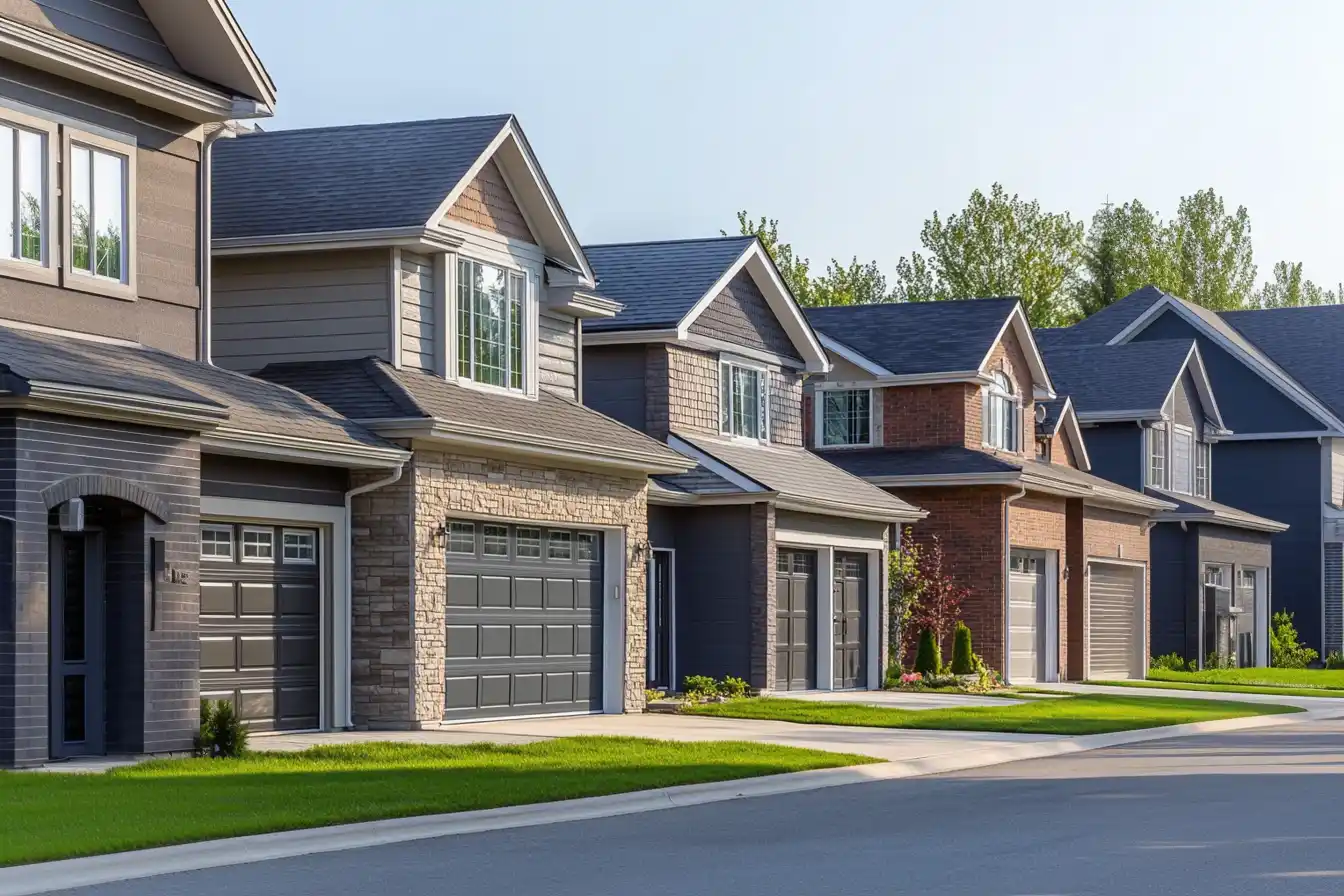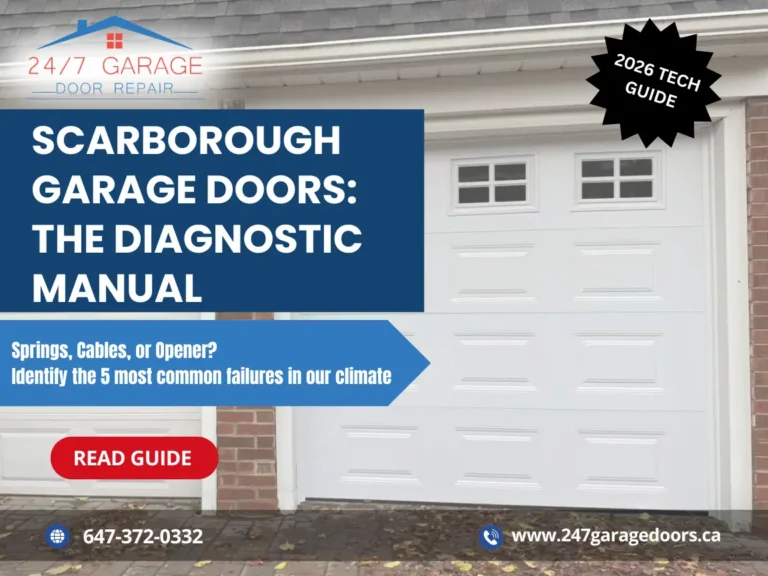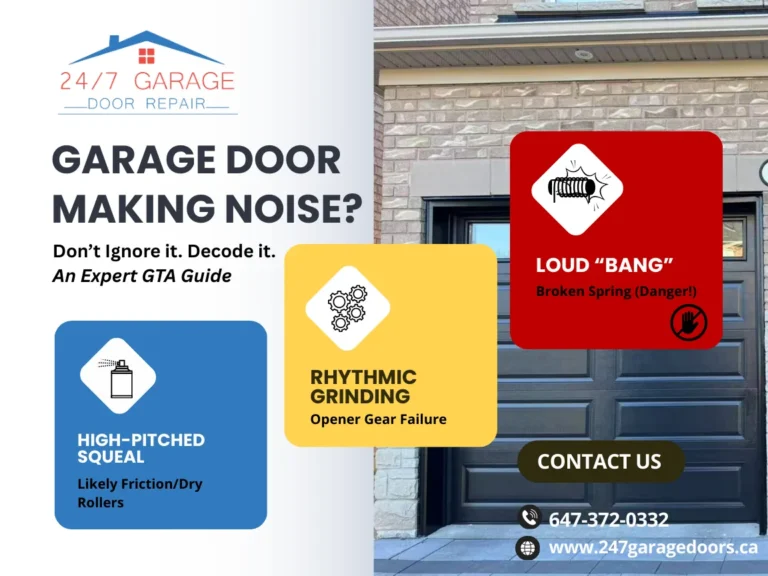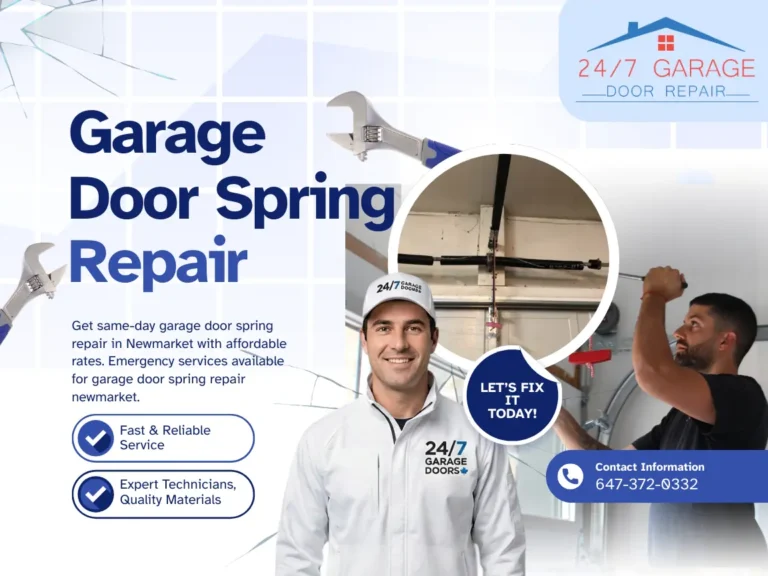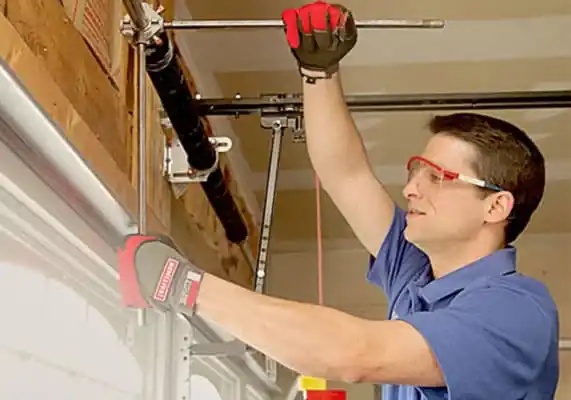Choosing the right garage door for your home is a significant decision that impacts not only the functionality of your garage but also the overall aesthetic appeal and value of your property. With countless options available in terms of materials, styles, colors, and features, the process can be overwhelming. This comprehensive guide will walk you through every aspect you need to consider to make an informed decision that suits your needs, complements your home’s architecture, and fits within your budget.
Understanding the Role of Your Garage Door
Before diving into the specifics of materials, styles, and features, it’s essential to understand the role your garage door plays in your home. A garage door serves several functions:
- Security: It’s often the largest entry point to your home, so it must be secure to protect against intrusions.
- Insulation: If your garage is attached to your home, the door plays a crucial role in energy efficiency, helping to maintain consistent indoor temperatures.
- Curb Appeal: A well-chosen garage door enhances the exterior appearance of your home, adding to its overall value and charm.
- Convenience: Modern garage doors offer features like remote operation, smart connectivity, and low maintenance, making daily life more convenient.
Understanding these roles will help you prioritize the features and specifications you need in a garage door.
Material Selection: Weighing the Pros and Cons
The material of your garage door is one of the most critical factors in its longevity, appearance, and maintenance needs. Below are the most common materials used for garage doors, along with their pros and cons:
a. Steel Garage Doors Steel is one of the most popular materials due to its durability and versatility. Steel doors can be painted to match any exterior color and are available in various styles.
Pros:
- Durable and long-lasting
- Low maintenance
- Available in insulated options for energy efficiency
- Resistant to warping and cracking
Cons:
- Susceptible to rust if not properly maintained
- Can dent under heavy impact
b. Aluminum Garage Doors Aluminum is lightweight and resistant to rust, making it an excellent choice for coastal regions with high humidity levels.
Pros:
- Lightweight and easy to operate
- Rust-resistant, ideal for humid climates
- Available in contemporary styles with glass panels
Cons:
- Less durable than steel, prone to dents
- Less energy-efficient unless insulated
c. Wood Garage Doors Wood doors offer a classic, timeless look and can be custom-crafted to fit any design preference.
Pros:
- Unmatched aesthetic appeal
- Customizable with various wood types and finishes
- Naturally insulating
Cons:
- High maintenance, requires regular sealing or painting
- Prone to warping, cracking, and rotting in extreme weather conditions
- Expensive compared to other materials
d. Fiberglass Garage Doors Fiberglass doors mimic the look of wood while being more durable and resistant to the elements.
Pros:
- Resistant to rust and corrosion
- Lightweight and durable
- Can be designed to mimic wood textures
- Low maintenance
Cons:
- Less energy-efficient than other materials
- Can yellow or crack over time if exposed to harsh sunlight
e. Vinyl Garage Doors Vinyl doors are durable, low-maintenance options that are particularly popular in regions with extreme weather conditions.
Pros:
- Extremely durable and resistant to dents
- Low maintenance, doesn’t require painting
- UV-resistant, won’t fade or crack in the sun
Cons:
- Limited design options and color choices
- Heavier than steel and aluminum

Style Choices: Matching Your Home’s Architecture
Your garage door is a prominent feature of your home’s exterior, so it’s essential to choose a style that complements your architectural design. Here are some common garage door styles and the types of homes they best suit:
a. Traditional Raised-Panel Garage Doors Raised-panel doors are the most common and versatile style. They feature a series of rectangular panels that can be arranged in various configurations.
- Best For: Colonial, Victorian, and other classic architectural styles.
- Customization: Can be painted or stained, available in various materials.
b. Carriage House Garage Doors Carriage house doors are designed to look like the doors of old carriage houses. They often feature decorative hardware and can open outward like traditional carriage doors, although most are designed to open vertically.
- Best For: Craftsman, cottage, and farmhouse-style homes.
- Customization: Available in wood, steel, and composite materials, with options for windows and decorative hardware.
c. Contemporary Garage Doors Contemporary doors are sleek and modern, often featuring clean lines, minimalist designs, and large glass panels.
- Best For: Modern, mid-century, and industrial-style homes.
- Customization: Typically made of aluminum or steel with frosted or tinted glass options.
d. Custom-Built Garage Doors For homeowners who want a truly unique look, custom-built doors offer limitless possibilities. You can work with a designer to create a door that perfectly matches your home’s architecture and personal style.
- Best For: Unique, high-end properties with specific design requirements.
- Customization: Available in all materials, with endless design options.
Insulation and Energy Efficiency: Keeping Your Home Comfortable
If your garage is attached to your home, or if you use it for more than just parking your car, insulation becomes an essential consideration. Insulated garage doors help regulate the temperature inside your garage, reducing energy costs and improving comfort.
a. Understanding R-Value The effectiveness of a garage door’s insulation is measured by its R-value. The higher the R-value, the better the insulation. Here’s what you need to know:
- Single-Layer (Non-Insulated) Doors: Low R-value, suitable for detached garages where temperature control is not a concern.
- Double-Layer Doors: Moderate R-value, suitable for attached garages with some level of insulation.
- Triple-Layer (Insulated) Doors: High R-value, ideal for garages that are used as living spaces or workshops.
b. Insulation Types
- Polystyrene Insulation: Commonly used in double-layer doors, provides moderate insulation and is lightweight.
- Polyurethane Insulation: Offers superior insulation with a higher R-value, also adds structural strength to the door.
Security Features: Protecting Your Home
A secure garage door is crucial for protecting your home and family. Modern garage doors come with several security features that can give you peace of mind:
a. Rolling Code Technology Rolling code technology prevents thieves from intercepting your garage door opener’s signal. Each time you use your remote, the code changes, making it nearly impossible for unauthorized access.
b. Smart Garage Door Openers Smart garage door openers allow you to monitor and control your garage door remotely via a smartphone app. You can receive alerts if the door is opened unexpectedly, check its status, and even close it from anywhere in the world.
c. Strong, Tamper-Resistant Hardware Look for doors with reinforced tracks, brackets, and hinges. Tamper-resistant hardware makes it more difficult for intruders to force the door open.
Maintenance and Longevity: Ensuring Your Door Lasts
Different materials and styles require varying levels of maintenance. Here’s a general overview of what you can expect:
a. Steel and Aluminum Doors
- Maintenance: Low maintenance, only requires periodic cleaning and inspection for rust.
- Longevity: Steel doors can last 15-30 years, while aluminum doors can last 20-30 years with proper care.
b. Wood Doors
- Maintenance: High maintenance, needs regular painting or staining to protect against the elements.
- Longevity: With proper maintenance, wood doors can last 20-30 years, but neglect can significantly shorten their lifespan.
c. Fiberglass and Vinyl Doors
- Maintenance: Very low maintenance, only requires occasional cleaning.
- Longevity: Fiberglass doors can last 20-30 years, and vinyl doors can last 20-40 years with minimal upkeep.
Cost Considerations: Balancing Budget and Quality
Garage doors are available at various price points, depending on the material, style, and features. Here’s a breakdown of what you can expect:
a. Budget-Friendly Options
- Cost: $500-$1,500
- Materials: Non-insulated steel, basic aluminum, and single-layer wood doors.
- Features: Limited customization options, basic insulation, and security features.
b. Mid-Range Options
- Cost: $1,500-$3,500
- Materials: Insulated steel, high-quality aluminum, and double-layer wood doors.
- Features: More design options, better insulation, enhanced security features.
c. High-End Options
- Cost: $3,500-$10,000+
- Materials: Custom wood, high-end steel, and fully insulated doors with premium finishes.
- Features: Extensive customization, smart technology, and superior insulation.
Choosing the Right Garage Door Opener
Your garage door opener is just as important as the door itself. When selecting an opener, consider the following:
Drive Types
- Chain-Drive Openers: Durable and affordable, but noisy.
- Belt-Drive Openers: Quieter than chain drives, ideal for garages near living spaces.
- Screw-Drive Openers: Low-maintenance and efficient, but slightly noisier than belt drives.
- Direct-Drive Openers: Quietest and most reliable, but more expensive
Horsepower
- 1/2 HP: Suitable for standard single-car garage doors.
- 3/4 HP: Better for heavier double-car garage doors or those made of solid wood.
- 1 HP or Higher: Ideal for oversized or custom doors.
Smart Features Look for openers with Wi-Fi connectivity, battery backup, and remote control via smartphone apps. These features add convenience and enhance security.
Hiring a Professional Installer
Even the best garage door won’t perform well if it’s not installed correctly. Hiring a professional installer ensures that your door operates smoothly and safely. When choosing an installer:
- Check Credentials: Ensure they are licensed, insured, and have good reviews.
- Ask for References: Speak with past customers to gauge their satisfaction.
- Get Multiple Quotes: Compare prices, but don’t compromise on quality for a lower cost.
- Review the Warranty: Ensure that both the door and installation are covered by a warranty.
Conclusion
Choosing the right garage door for your home involves careful consideration of various factors, from material and style to insulation and security features. By understanding your options and prioritizing your needs, you can select a door that not only enhances your home’s curb appeal but also provides security, convenience, and energy efficiency. Whether you opt for a classic wood door or a modern aluminum design, investing in a high-quality garage door is a decision that will benefit your home for years to come.


